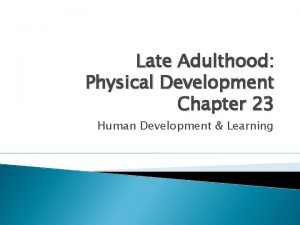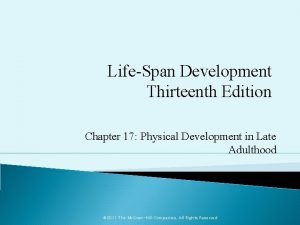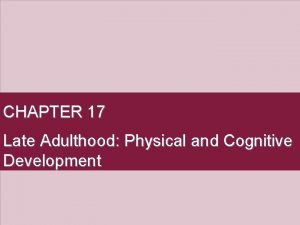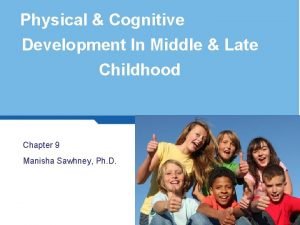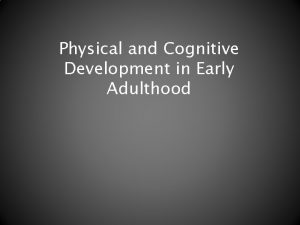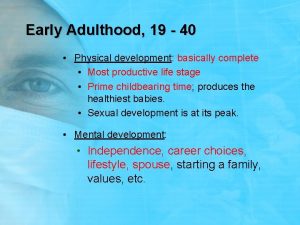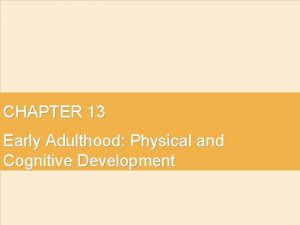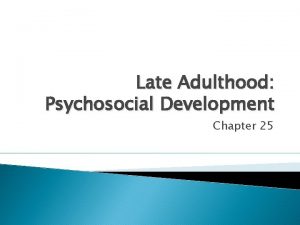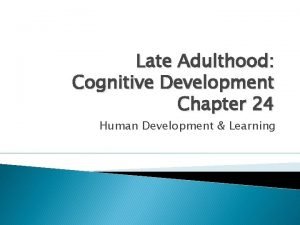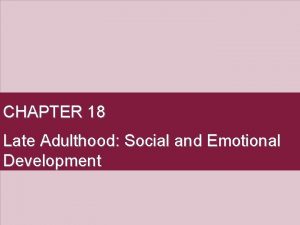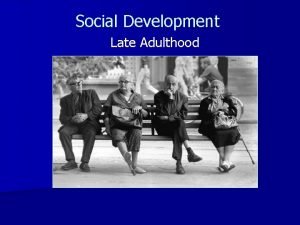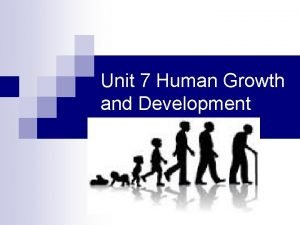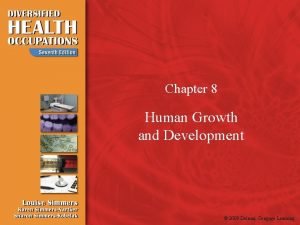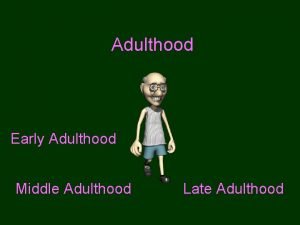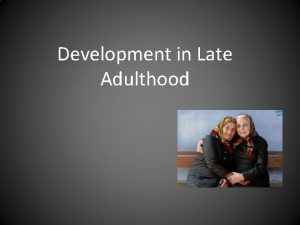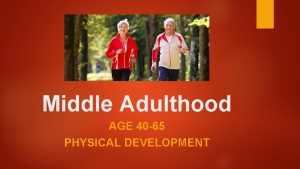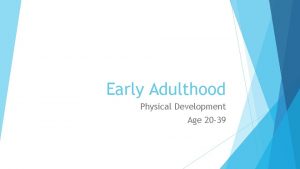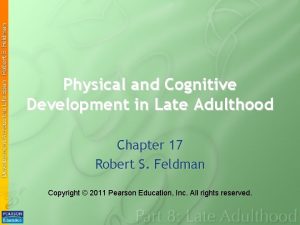Adulthood Early Adulthood Middle Adulthood Late Adulthood Physical















- Slides: 15

Adulthood Early Adulthood Middle Adulthood Late Adulthood

Physical Changes • All physical abilities essentially peak by our mid twenties (this is why I am the perfect male specimen).


Physical Milestones • Menopause: the natural ending of a woman’s ability to reproduce. • There are physical symptoms led by a lack of estrogen. • What psychological effects can menopause have? Men do not experience anything like menopause. We can pretty much produce sperm forever.

Life Expectancy • Life Expectancy keeps increasingnow about 75. • Women outlive men by about 4 years. • But more men are conceived 126 to 100. Then 105 to 100 by birth. In other words, men die easier.

Sensory Abilities

Health • Bad news: is as we get older our immune system weakens, thus we become more susceptible to life threatening ailments (cancer). • Good News: because older build up a collection of antibodies throughout the years, they get minor colds less often.

Age and Driving • The brain processes information at slower speeds.

Alzheimer’s Disease • A progressive and irreversible brain disorder characterized by gradual deterioration of memory, language and physical functioning. • Runs its course in 5 to 20 years. • Deterioration of neurons that produce the neurotransmitter…. Acetylcholine Estrogen supplements may stop the onset of Alzheimer’s Disease.

Cognitive Changes • We tend to remember events from our teens and twenties. • Difference between recognition and recall. Recognition remains stable. Recall declines with old age.

Do old people get stupid? • Cross-sectional studies show decline. • Longitudinal Studies show consistency. What is the difference? Cross-sectional studies: study with people of different ages studied at the same time. Longitudinal Studies: same people studied and retested over a period of time.

But there are different types of intelligence. • Crystallized intelligence: one’s accumulated knowledge and verbal skills; tends to increase with age. Fluid Intelligence: one’s ability to reason speedily and abstractly; tends to decrease during late adulthood.

Social Development of Adults Social Clock Culturally preferred timing of certain events.

Love and Marriage • What kind of marriages work? 5 to 1 ratio of positive to negative interactions.

 Late adulthood physical development
Late adulthood physical development Physical development in late adulthood
Physical development in late adulthood Late adulthood physical development
Late adulthood physical development Changes in late adulthood
Changes in late adulthood Late childhood physical development
Late childhood physical development Reflective and relativistic thinking
Reflective and relativistic thinking Social development in adulthood 19-45
Social development in adulthood 19-45 Physical and cognitive development in early adulthood
Physical and cognitive development in early adulthood Filial maturity
Filial maturity Psychosocial development in late adulthood
Psychosocial development in late adulthood Late adulthood intellectual development
Late adulthood intellectual development Pecks developmental tasks
Pecks developmental tasks Social and emotional development in late adulthood
Social and emotional development in late adulthood Socioemotional selectivity theory
Socioemotional selectivity theory Emotional development in late adulthood
Emotional development in late adulthood Chapter 8:1 life stages
Chapter 8:1 life stages
